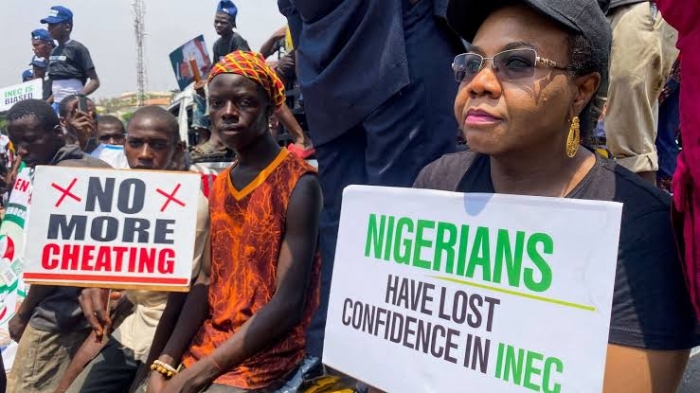Once again, Nigeria’s electoral process has descended into a grotesque spectacle, as witnessed in the recent Edo State governorship election. What transpired on September 21, 2024, was not an election in any democratic sense, but rather a shameless transaction, where votes were auctioned to the highest bidder. Olumide Akpata, the Labour Party candidate, aptly described the event as a "bidding war" for votes between the two dominant parties, the All Progressives Congress (APC) and the Peoples Democratic Party (PDP). This "election" is yet another confirmation that Nigeria’s democracy has been hijacked by political entrepreneurs who have mastered the art of manipulating poverty to serve their insidious ends.
In Edo State, voters were not exercising their democratic right to choose a leader, but were instead coerced into selling their future for a few thousand naira. Both the APC and PDP, with their respective access to state coffers, engaged in a flagrant display of ill-gotten wealth to buy votes, thereby reducing the electoral process to nothing more than a marketplace of corruption. According to reports, the APC's candidate, Monday Okpebholo, who was declared the winner, secured 291,667 votes, while his closest rival, Asue Ighodalo of the PDP, garnered 247,274. Akpata, who finished third with 22,763 votes, was clear in his condemnation: what occurred in Edo was a "show of shame."
The irony of this situation is inescapable. Both the APC and PDP, entities that have presided over Nigeria’s deepening economic misery, are the very forces perpetuating the cycle of poverty and poor governance that traps the electorate. The weaponization of poverty has become their most effective tool. In a country where many struggle daily to survive, it is no wonder that vote-buying schemes are so effective. The people of Edo were not just buying into a politician’s manifesto; they were buying into the illusion that the few naira in their hands could alleviate their suffering, even if only temporarily.
This political charade was further exposed by the civil society organization Yiaga Africa, which noted that the election failed the integrity test, pointing to inconsistencies in the collation process and widespread voter intimidation. Akpata went as far as to accuse his own party agents and some supporters of participating in this disgraceful "cash-and-carry" approach to politics. His refusal to engage in such practices came at a great personal cost, as even his own polling unit was lost—an indictment of a system that rewards corruption and punishes integrity.
Peter Obi, the Labour Party’s presidential candidate in the 2023 general election, voiced his outrage over the Edo election, calling it a blatant example of "state capture" that continues to undermine Nigeria's democratic process. He rightfully pointed out that any nation whose leadership recruitment process is so deeply flawed is doomed. Obi’s critique cuts to the heart of the matter: Nigeria’s political system, as it stands, cannot produce the kind of leadership needed to move the country forward.
What we are witnessing in Edo and across the country is not an anomaly—it is the system working exactly as it was designed to, by those in power. The APC and PDP have become indistinguishable in their shared commitment to looting the country’s resources and exploiting its citizens. Elections have become a mere formality, a ritual in which the outcome is predetermined by who can afford the largest bribe. It no longer matters which party wins; the result is the same: misrule, corruption, and the entrenchment of poverty.
As Akpata pointed out, the consequences of this broken system are dire. The governor-elect in Edo will not serve the interests of the people, but rather the interests of the godfathers and power brokers who financed his campaign. Edo State, like much of Nigeria, will continue to suffer from underdevelopment, resource misallocation, and governance that serves a select few at the expense of the many.
The current electoral system in Nigeria is beyond reform. It is a deeply entrenched mechanism of state capture, designed to preserve the power of a corrupt elite. What is needed is a radical overhaul—an entirely new system built from the ground up, one that prioritizes accountability, transparency, and the will of the people. This is the conversation that Nigeria’s intelligentsia, its civil society, and its few remaining ethical leaders must begin in earnest.
The time for half measures and cosmetic reforms is over. If Nigeria is to have any hope of a brighter future, it must abandon this failed system and build one that truly represents the aspirations of its people. Until then, elections like the one in Edo will remain nothing more than hollow transactions, ensuring that the cycle of poverty, corruption, and bad governance continues unchecked.


































































